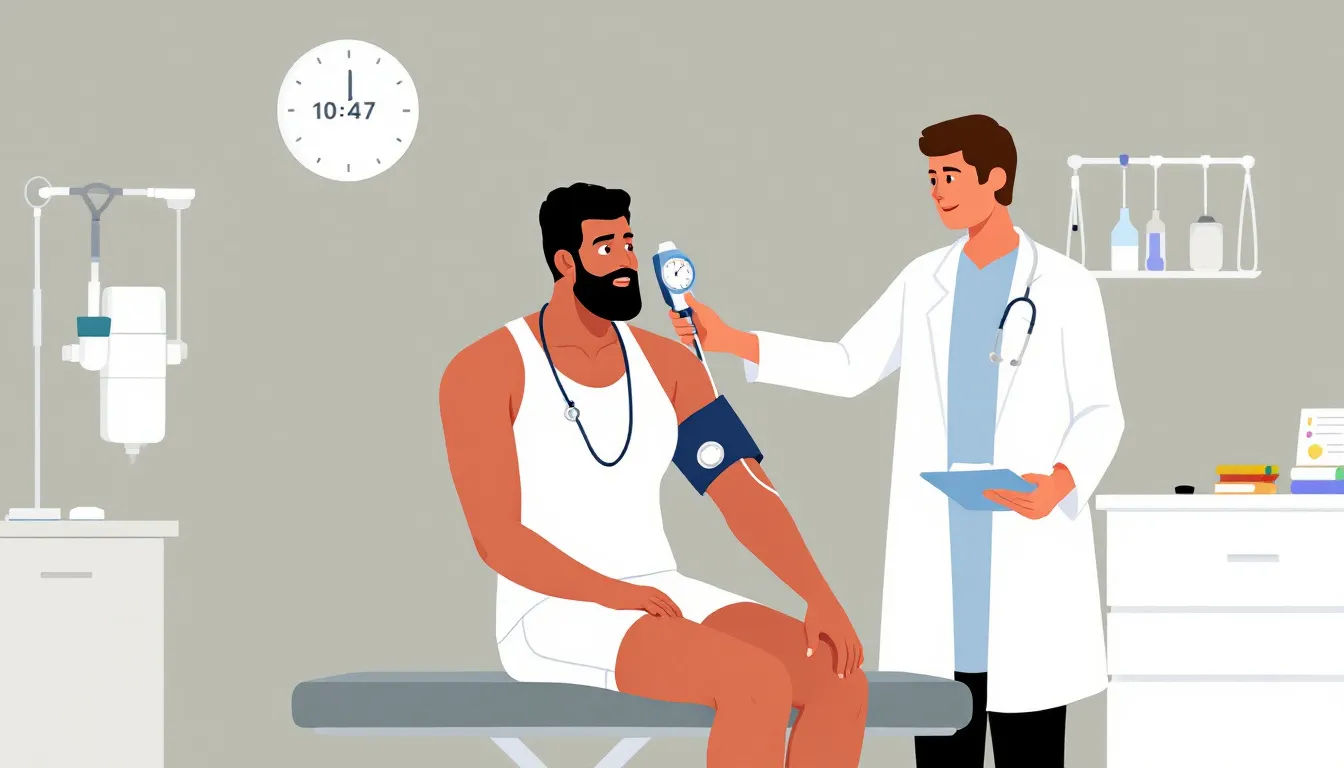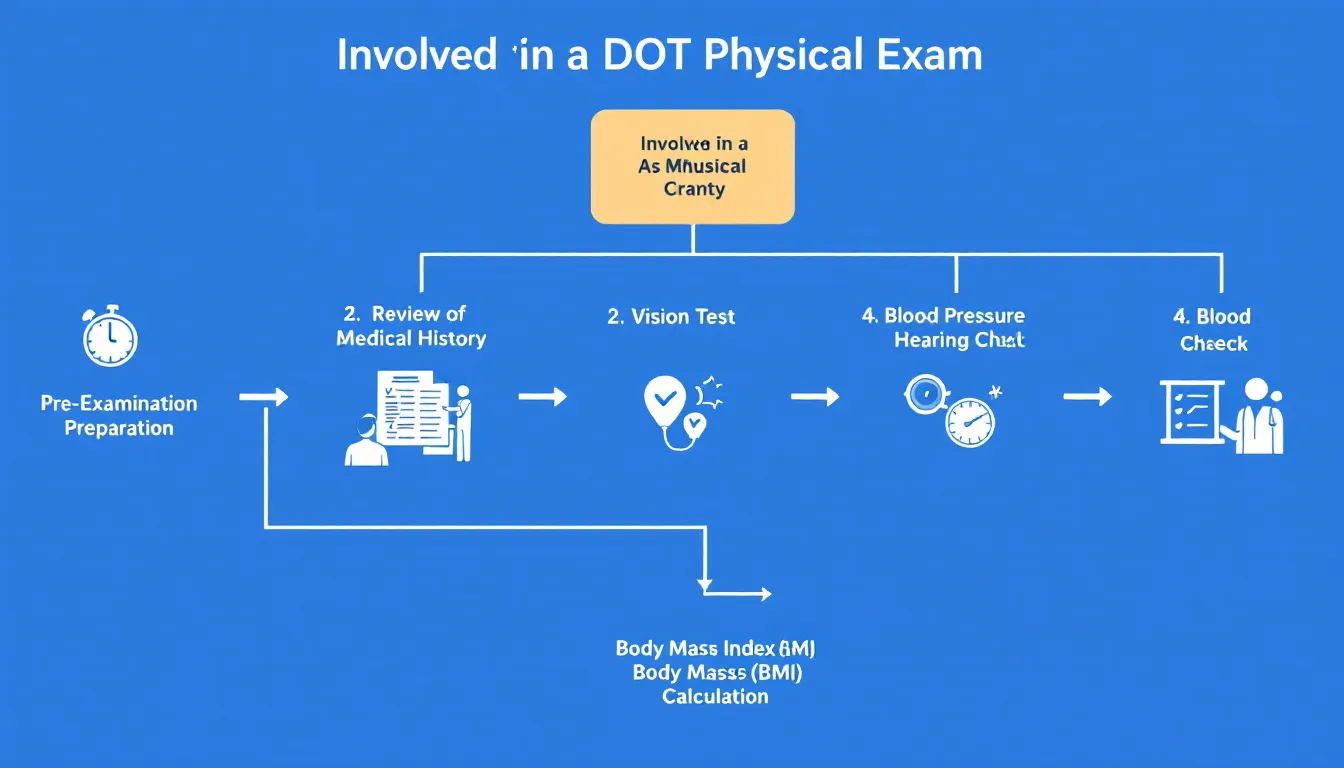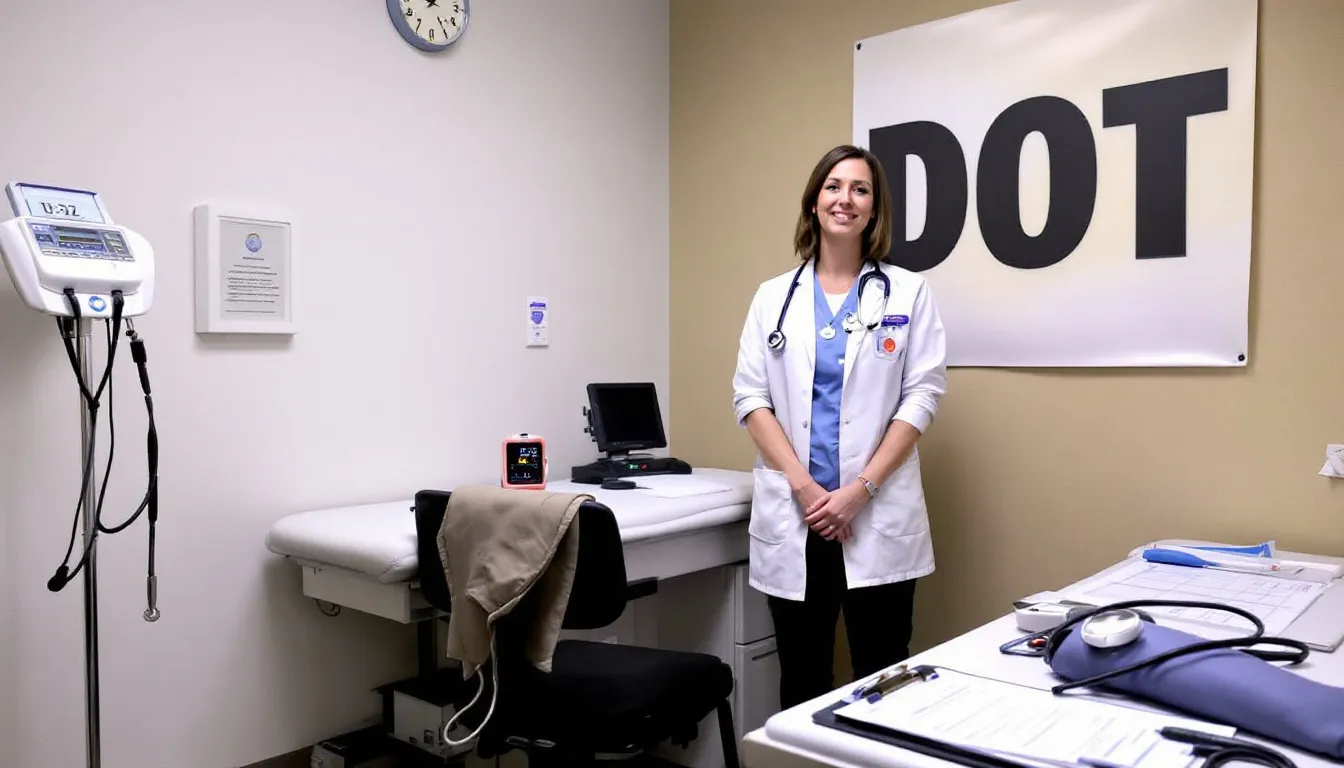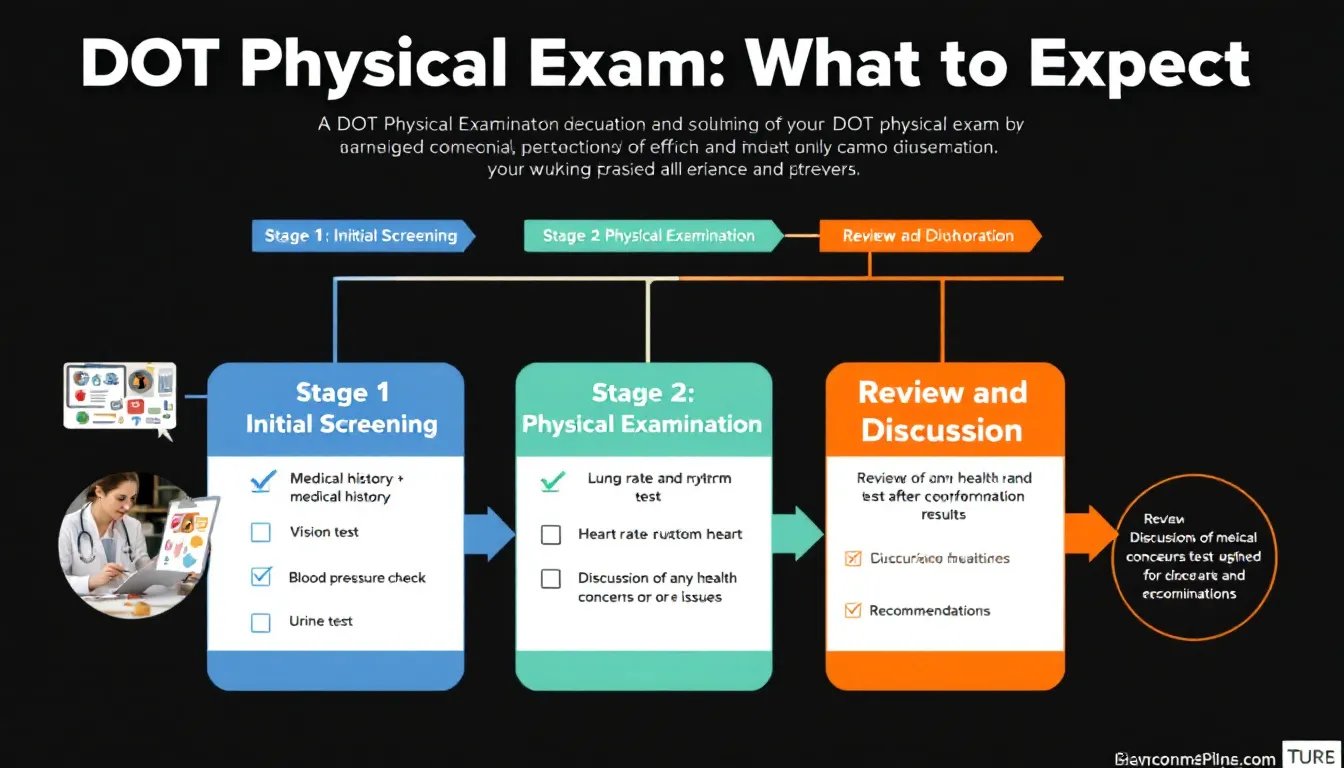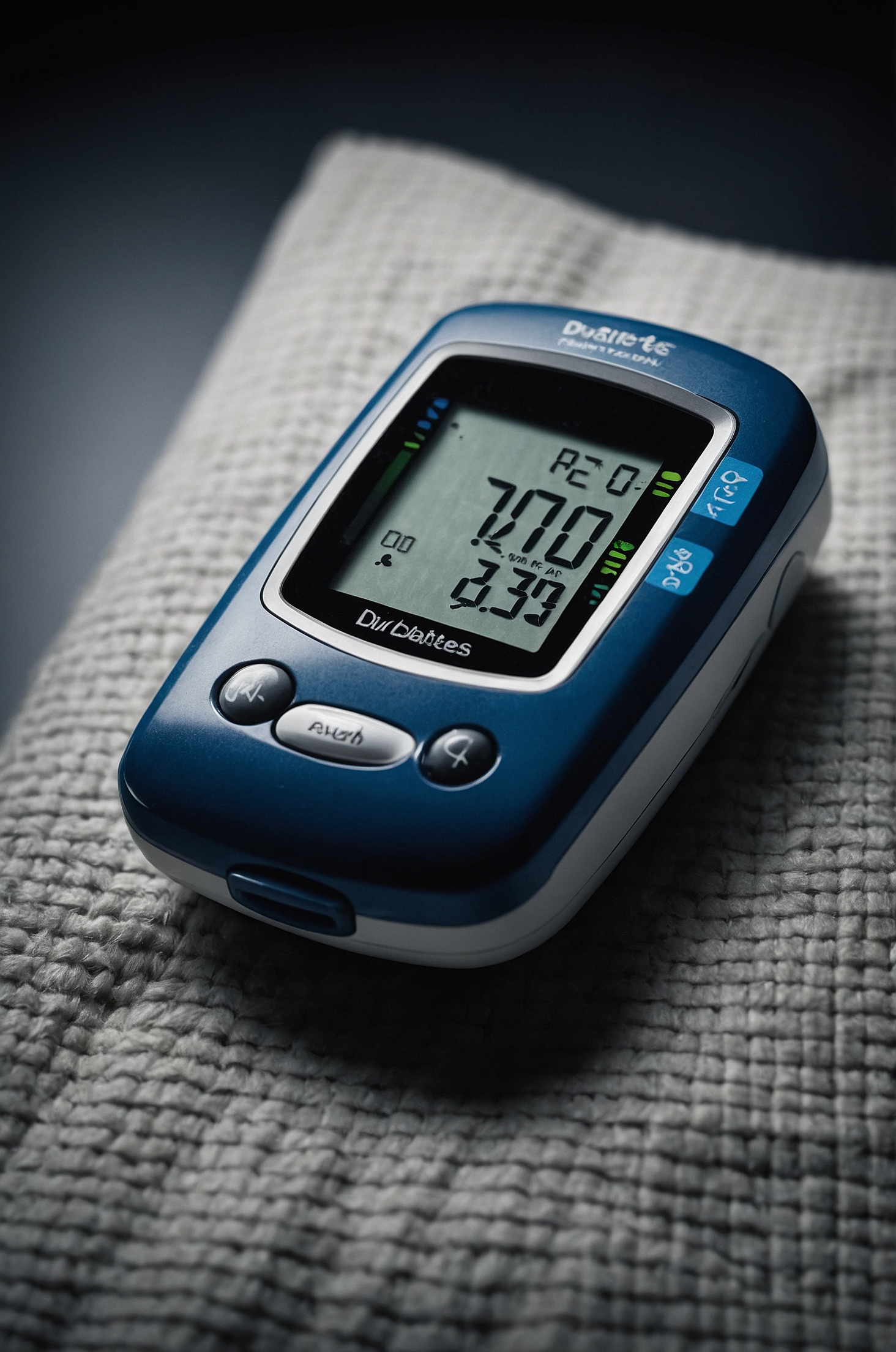What does neck size, weight, and BMI have to do with the DOT physical exam?
Neck size, weight, and BMI are all just indicators that the medical examiner looks at to determine if you may have a condition that would impact your ability to safely drive a commercial vehicle now or for the period for which the medical card may be issued. DOT physicals are required for all commercial drivers to ensure they meet health and safety standards. The DOT physical assesses a range of health conditions, including sleep apnea, to determine driver fitness. The DOT medical exam is important for evaluating sleep apnea diagnosis and treatment compliance. There are currently no set specifics on these measurements in the DOT regulations. However, companies may set their own policies and have their own standards for these indicators, which may disqualify you to drive for that particular company. Medical examiners are responsible for screening for sleep apnea and other health conditions during the DOT physical. In the past few years, there has been increased focus on sleep apnea detection during DOT physicals.
What does snoring have to do with the DOT physical exam?
Snoring, in combination with obesity, can be highly predictive of obstructive sleep apnea risk. That said, even the loudest of snorers may not have a breathing obstruction. The sign that is most suggestive of sleep apnea occurs when snoring stops. If both snoring and breathing stop while the person’s chest and body try to breathe, that is literally a description of an event called an ‘apnea’. When breathing starts again, there is typically a deep gasp and then the resumption of snoring. For the DOT physical exam the medical examiner evaluates your overall physical condition and health history to determine if there are signs of a medical condition that may affect your ability to safely drive a commercial motor vehicle (CMV). If the medical examiner has reasonable suspicion that you have sleep apnea you may have to go for an overnight sleep test called a polysomnogram before you can be further considered for certification. Sleep apnea testing may be recommended by the medical examiner if risk factors are present, and a sleep apnea test may be required if certain criteria, such as BMI or neck width, are met. Health conditions like sleep apnea must be managed to pass the DOT physical. Undiagnosed sleep apnea can increase accident risk and may be identified during the DOT physical. Major sleepiness or fatigue must be reported and managed to ensure driver safety. Quality sleep is essential for safe driving and overall health, and better sleep through effective treatment improves driver alertness and safety. Drivers with sleep apnea may struggle to stay awake during long trips if untreated.
Is sleep apnea a disqualifier?
Sleep apnea does not necessarily disqualify you for medical certification. A diagnosis of sleep apnea does not automatically disqualify a driver, but failure to comply with treatment can lead to disqualification. Treatment with a CPAP machine and some basic lifestyle changes can help you get a restful sleep and maintain your commercial driver’s license. Many drivers who have suffered fatigue for a long time, and then were diagnosed with sleep apnea and treated, report that they’ve felt like a new person since they’ve been on a CPAP machine. Most apnea cases can be successfully managed with appropriate therapy. You will need to bring a medical opinion letter from your treating physician before you can be considered for DOT medical certification. In order for you to be compliant with regulations your report from your CPAP machine must show at least 70% usage for the previous 30 day period. Drivers must demonstrate they are managing their condition properly to pass the DOT physical. Successful treatment of sleep apnea can help drivers maintain their medical certification. Drivers whose sleep apnea is effectively treated are more likely to pass the DOT physical and maintain their license. Sleep apnea cases are reviewed by medical examiners to determine fitness for duty. Maintaining a commercial driver’s license requires meeting health standards, including sleep apnea management. A CMV driver must demonstrate compliance with sleep apnea treatment to maintain certification. CDL drivers are affected by sleep apnea regulations and must comply with treatment requirements.
Is narcolepsy a disqualifier?
Narcolepsy is a disqualifier regardless of treatment, because it poses a risk of EDS and may also bring on sudden muscular weakness.
What is EDS? Is EDS a disqualifier?
EDS stands for Excessive Daytime Somnolence or Sleepiness. Because fatigue and driver drowsiness are safety concerns, the medical examiner must rule out EDS before certifying. A driver who has EDS will be temporarily disqualified until the condition is being successfully treated. The medical examiner will want to see a medical opinion letter from the treating physician before issuing a medical card.
If I’m overweight do I have to have a sleep apnea test?
No. Being overweight, of itself, does not mean that you should be tested for sleep apnea. Overweight is an initial indicator for the medical examiner to make sure that other conditions aren’t present which may affect your ability to safely operate a CMV. The medical examiner will evaluate your overall physical condition and health history. The medical examiner has a responsibility to have you tested for sleep apnea if he/she has reasonable suspicion that you may have sleep apnea. Sleep apnea testing may be recommended by the medical examiner if risk factors are present. A sleep apnea test may be required if certain criteria, such as BMI or neck width, are met. Many people suffer for years from sleep apnea and don’t know they have it until a doctor catches the symptoms. Sleep apnea is not only associated with sleep deprivation. It’s also associated with an increased risk of cardiovascular disease, stroke, high blood pressure, arrhythmias, and diabetes. The most serious complication is a severe form of congestive heart failure. Severe sleep apnea may require treatment and clearance from a medical examiner before a driver can be certified. Sleep apnea sufferers also have a 30% higher risk of heart attack or premature death than those unaffected.
Is there a BMI limit for commercial drivers to pass the DOT physical?
There are currently no set specifics on BMI measurement in the DOT regulations. However, companies may set their own policies and have their own standards for these indicators, which may disqualify you to drive for that particular company. However, the proposed rules for the FMCSA indicate that if your BMI is above 35, it is an indicator that you may have sleep apnea.
What does neck size have to do with the DOT physical exam?
Neck size, weight, and BMI are all just indicators that the medical examiner looks at to determine if you may have a condition such as sleep apnea that would impact your ability to safely drive a commercial vehicle now or for the period for which the medical card may be issued. Neck width is one of the physical measurements considered during a DOT physical to assess sleep apnea risk. Neck size for men of 17 inches or larger and women neck size of 15.5 inches or greater are indicators. Other indicators of potential obstructive sleep apnea are enlarged tonsils and large tongue volume. Individuals with low muscle tone and soft tissue around the airway (e.g., because of obesity) and structural features that give rise to a narrowed airway, are at high risk for obstructive sleep apnea. Because sleep apnea is associated with increased risk of other debilitating diseases, it’s the responsibility of the medical examiner to rule out suspicion of sleep apnea, for driver certification. Truck drivers are at higher risk for sleep apnea and must be screened during DOT physicals. The combination of BMI, neck size and a visual examination of the throat opening are just some of the indicators which may lead the examiner to request a sleep study.
If your BMI is over 40, the examiner is going to request a sleep study. If your BMI is 33 or greater AND you have additional indicators neck size, enlarged tonsils, large tongue volume or small throat, the examiner will request a sleep study per the FMCSA guidance.
What does snoring have to do with the DOT physical exam?
Snoring, in combination with obesity, can be highly predictive of obstructive sleep apnea risk. That said, even the loudest of snorers may not have a breathing obstruction. The sign that is most suggestive of sleep apnea occurs when snoring stops. If both snoring and breathing stop while the person’s chest and body try to breathe, that is literally a description of an event called an ‘apnea’. When breathing starts again, there is typically a deep gasp and then the resumption of snoring. For the DOT physical exam the medical examiner evaluates your overall physical condition and health history to determine if there are signs of a medical condition that may affect your ability to safely drive a CMV. If the medical examiner has reasonable suspicion that you have sleep apnea you may have to go for an overnight.
Introduction to Sleep Apnea
Sleep apnea is a common but serious sleep disorder that causes repeated interruptions in breathing during sleep. These pauses in breathing can last from a few seconds to a minute and may occur dozens or even hundreds of times each night. For truck drivers and commercial truck drivers, sleep apnea is especially concerning because it leads to poor sleep quality, excessive daytime sleepiness, and drowsy driving—all of which can compromise safety on the road. The Federal Motor Carrier Safety Administration (FMCSA) requires that all commercial drivers be medically qualified to drive, and screening for sleep apnea is an important part of this process. Understanding sleep apnea and its impact is essential for anyone who wants to remain medically qualified to drive a commercial vehicle and ensure they get the most restful sleep possible.
Risk Factors and Common Symptoms
There are several risk factors that can increase your chances of developing sleep apnea. Obesity is one of the most significant, but other factors such as high blood pressure, diabetes, and a family history of sleep apnea also play a role. Truck drivers and commercial truck drivers are at a higher risk due to the demands of their job, which often include long hours behind the wheel, irregular sleep patterns, and limited opportunities for healthy eating and exercise. Common symptoms of sleep apnea include loud snoring, frequent awakenings during the night, excessive daytime sleepiness, morning headaches, and trouble concentrating. If you notice these symptoms of sleep apnea, especially if you have other risk factors, it’s important to talk to your healthcare provider. Early recognition and treatment can help prevent more serious health problems and keep you safely on the road.
How Sleep Apnea Impacts Your DOT Physical Exam
Sleep apnea is a key health condition that the medical examiner will consider during your DOT physical exam. The examiner will review your medical history, ask about any symptoms of sleep apnea, and perform a physical examination to look for risk factors such as a high body mass index, large neck circumference, or other signs of obstructive sleep apnea. If you are diagnosed with sleep apnea, you may be required to begin CPAP therapy (continuous positive airway pressure) or another form of treatment to manage your condition. The goal is to ensure that you are able to safely operate a commercial vehicle without the risk of drowsy driving or other complications. Being proactive about your health and following your treatment plan can help you stay medically qualified and maintain your commercial driver’s license.
Diagnosing Sleep Apnea: What Drivers Need to Know
If your medical examiner suspects you may have sleep apnea, you will likely be referred for a sleep study. This test, also known as a polysomnogram, can be done in a sleep lab or at home with a portable device. The sleep study monitors your breathing, oxygen levels, and sleep patterns to determine how many apnea episodes you experience per hour and how severe your sleep apnea is. If you are diagnosed with sleep apnea, your healthcare provider will work with you to develop a treatment plan, which may include CPAP therapy, lifestyle changes, or other interventions. It’s important to follow your treatment plan and keep records of your CPAP compliance, as this information may be required during your DOT physical exam to show that your condition is being effectively managed.
Consequences of Untreated Sleep Apnea
Leaving sleep apnea untreated can have serious consequences, especially for commercial truck drivers. Untreated sleep apnea increases your risk of accidents due to drowsy driving, and it can also lead to long-term health problems such as high blood pressure, heart disease, and diabetes. If you are diagnosed with sleep apnea, it’s essential to begin treatment right away and demonstrate compliance with your therapy to keep your commercial driver’s license and continue driving a commercial motor vehicle. Failing to treat sleep apnea or not following your prescribed treatment plan can result in losing your CDL and being disqualified from driving. Taking sleep apnea seriously and working with your healthcare provider ensures you stay healthy, alert, and safe on the road.

I am the administrator for the Charlotte DOT Exam facility, located in Charlotte NC. I oversee the facility services providing DOT exams in accordance with the standards of the FMCSA. We also provide DOT drug testing with MRO support when required. Drug testing can also be done for non-DOT exams such as pre-employment. In order to minimize wait times, I always encourage our clients to contact us first and make an appointment.
I would also suggest that each individual wanting to test for the CDL health card read the article “Preparing For Your DOT Exam” as it lists several things to bring to the test, such as CPAP usage reports and medicine lists.

